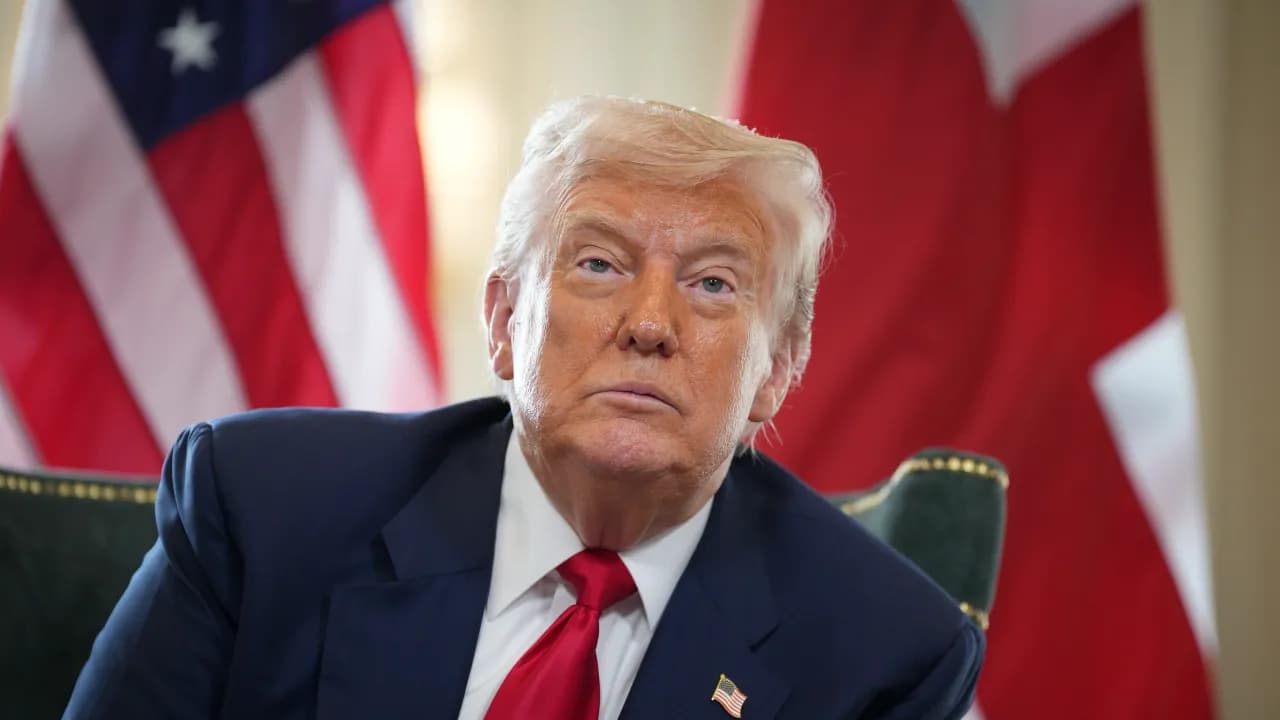Pharma stocks declined over fears of U.S. tariffs, but experts remain cautiously optimistic. India’s strength in generics may shield its exporters from any sweeping changes, according to an analyst.
Indian pharmaceutical stocks traded under pressure on Wednesday after US President Donald Trump said he would sharply raise tariffs on imported medicines.
In an interview with CNBC, he said he would impose a “small tariff” on pharma imports, with plans to gradually increase it to 150% over the next 18 months and eventually to 250%, to push drugmakers to shift manufacturing back to the U.S.
Data on Stocktwits shows that retail sentiment has been ‘bearish’ on the Nifty Pharma index for a week.
Are Pharma Concerns Overdone?
However, SEBI-registered analyst Sumesh Guleria believes that the concern around pharma might be overstated. He called the chatter around Trump’s new wave of tariffs a negotiation tactic, and not a finalized, broad-based trade policy.
Here’s his rationale. Tariffs have primarily been used as a bargaining tool. Guleria said that while aggressive tariff rates are floated, many are either suspended or never implemented. And that it was a ‘classic Trump playbook move’ to create pressure through tough talk before negotiating a deal.
He cited the agreement between the United States and the European Union, which reached a consensus on a broad 15% tariff. But for pharmaceuticals, only branded pharma was subject to new tariffs. In contrast, generic medicines were either exempt or remained subject to the pre-January 2025 conditions.
Drawing from this US-EU deal, Guleria believes that it is reasonable to expect that India will remain largely unaffected, given that its exports to the U.S. are predominantly generic medicines. Additionally, it is possible that Indian-origin generics would be treated similarly.
And given the high healthcare costs that US citizens are grappling with, Guleria noted that it was unlikely for any administration to make essential generics more expensive for American citizens.
He cautioned that investigations into the impact of pharmaceutical imports are still ongoing. And that Trump’s team is conducting a review, with any new policy being tentative for now.
Guleria concluded that the broad bearishness around Indian pharma exports appears to be more sentiment-driven than policy-driven. Adding that there was very little reason to panic, especially for the generic segment, where India’s strength is establised and the policy risk appears minimal.
Impact On Indian Pharma Companies
Meanwhile, analyst Saurab Jain highlighted that the Indian pharmaceutical sector, valued at over $50 billion, contributed nearly 20% of global generic exports. Moreover, it supplied around 40% of the generic medicines consumed in the United States.
He opined that Trump’s tariff threats pose a risk for Indian pharma companies because their profit margins are already thin, and a sudden tariff could render exports financially unviable, with the companies having to look at diversification into European, African, and Southeast Asian markets.
However, firms with a focus on complex generics, biosimilars, and CDMO services may remain relatively insulated, Jain added.
The Most Exposed Indian Pharma Firms:
Sun Pharma: India’s largest pharma company, with sizable U.S. revenue, including generics and specialty drugs.
Dr. Reddy’s Labs: Has a high dependency on U.S. generics, including injectables and oncology.
Lupin: Major US presence in generics, including respiratory and cardiovascular.
Cipla: Strong US respiratory portfolio; recent expansion in generics.
Aurobindo Pharma: Significant US exposure (over 40% of revenue); extensive oral solids portfolio.
Zydus Lifesciences: Active in US generics and biosimilars.
Alkem Labs: Growing US presence in oral solids and injectables.
The Nifty Pharma index has fallen 8% so far this year.
For updates and corrections, email newsroom[at]stocktwits[dot]com.<
